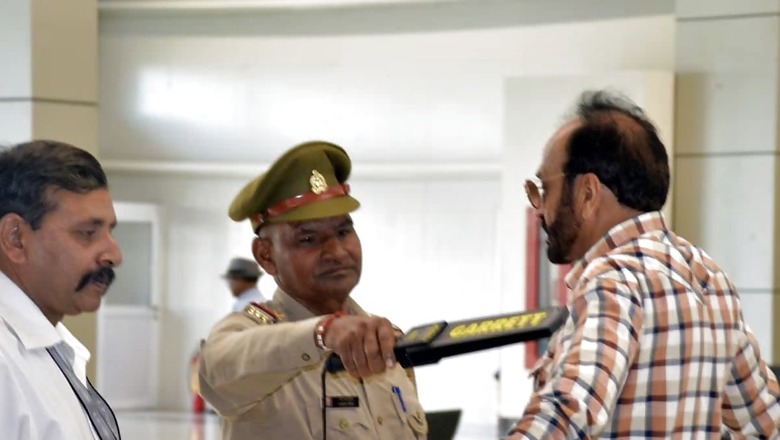
views
The Bureau of Civil Aviation Security (BCAS) has set a fresh deadline of June 2024 for the airports across country to install full body scanners.
A full body scanner is a device that detects objects on or inside a person’s body for the purpose of security screening. Countries like Australia, Canada and the US including others have been using full body scanners at their airports for years.
Issuing technical specifications, the regulatory authority for civil aviation security in India has recently advised airports that at least one full body scanner shall be installed at all airports with a minimum annual footfall of five million passengers.
Other than these airports, the BCAS said at least one full body scanner must be installed at Srinagar, Jammu and Ayodhya airports.
The order further reads that the airports with terminals having both domestic and international security check points shall install minimum one full body scanner for both the security checkpoints.
Currently, only the new terminal (T-2) of Bengaluru airport has three full body scanners which are under trial.
Previously, trials for full body scanners were held at Hyderabad, Pune, Chennai and Delhi international airports also, but did not turn out to be satisfactory.
A senior officer in the Central Industrial Security Force (CISF), a paramilitary force that secures airports in India, and has been actively associated during trial runs of full body scanners, said, “During these trials, we found that the body scanners were unable to detect prohibited items below ankle and above chin. Some prohibited items small in size also escaped detection. Since it did not yield expected results, nothing could be taken forward. Detailed reports were submitted to the authorities concerned,” the officer said, requesting not to be named.
During the initial trials at the Delhi’s Indira Gandhi International airport held in December 2016, it was also seen that body scanners raised false alarms whenever a woman wearing a sari passed through it.
It was commonly seen that a scanner would raise an alarm on spotting a mangalsutra (worn traditionally by married Indian women) or if the passenger’s clothes had embroidery with metal pieces in it.
The CISF had even then conveyed to the manufacturers to tweak specifications as per Indian needs but problems persisted even during the second round of trials conducted between 2017 and 2018.
Later in 2019, a fine-tuned version of full body scanners were again tried at Delhi airport but failed to yield expected results.
Check detailed seat predictions based on Exit Poll Results 2024 LIVE . Get minute-by-minute updates on the exit polls from Andhra Pradesh.



















Comments
0 comment